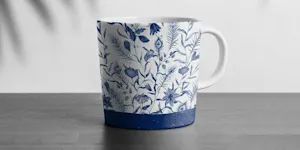What Makes This Word Tick
"Elixir" conjures images of mysterious potions and age-old brews. It's a word imbued with a sense of magic and nostalgia, hinting at ancient remedies and the quest for eternal youth. Often associated with alchemy, elixirs promise transformation and healing, even if only in the imagination.
If Elixir Were a Person…
If elixir were a person, it would be the wise old apothecary in a fairy tale, offering a mix of sage advice and a dash of enchantment. They'd carry a whiff of herbs and a hint of mystery, their pockets always containing something curious to intrigue the unwary traveler.
How This Word Has Changed Over Time
Originally, an elixir was believed to be a substance capable of turning base metals into gold or extending life indefinitely. While its alchemical roots have faded, today it's often used metaphorically to describe anything thought to improve or revitalize, from herbal teas to new ideas.
Old Sayings and Proverbs That Use Elixir
While traditional sayings don't frequently mention "elixir," any maxim about the fountain of youth or panaceas captures its essence. The enduring human quest for a universal remedy is timeless, echoed in tales across cultures.
Surprising Facts About Elixir
In the Middle Ages, the word for elixir was intertwined with alchemical practices. Alchemists yearned to discover not only gold but the secret to eternal life. Interestingly, modern pharmaceuticals still use the term to describe sweetened, medicinal liquids.
Out and About With This Word
"Elixir" is a favored term in the world of luxury and wellness. You'll spot it on labels of high-end skincare products, exotic beverages, and even in spa brochures, promising rejuvenating qualities and a touch of indulgence.
Pop Culture Moments Where Elixir Was Used
Popular fiction has revved up the allure of elixirs, from J.K. Rowling's "Harry Potter" series with its flasks of magical potions to timeless tales in which heroes seek mystical drafts to save the day or secure their destiny.
The Word in Literature
Elixirs play charming roles in fantasy and historical novels, weaving into plots as potions with the power to heal, deceive, or grant eternal life. Works like Paulo Coelho's "The Alchemist" explore the metaphorical journey towards self-discovery and treasure, bringing the word to life.
Moments in History with Elixir
In the 16th century, Paracelsus, a Swiss physician and alchemist, postulated the existence of the "elixir of life." This quest contributed to the development of chemistry, as seekers of the elixir dabbled in what would become the empirical sciences.
This Word Around the World
While "elixir" is relatively consistent in English and many languages, cultures around the globe have their unique versions—think Chinese "hǔ huó yào" for life-prolonging mixtures or the Ayurvedic "Rasayana." Each holds its own mystique and promise.
Where Does It Come From?
The word "elixir" originates from the Greek "xērion," meaning a powder for drying wounds. Over time, it morphed in Arabic to "al-iksīr," embodying the mystical cure-alls of ancient lore and medieval experiments.
How People Misuse This Word
Many use "elixir" intending to imply a cure-all when they simply mean something beneficial or refreshing. It's a small leap from promising eternal youth to suggesting miraculous outcomes.
Words It’s Often Confused With
Potion: Conjures images of magical or medicinal liquids, often with a fantastical element.
Tonic: Typically a medicinal substance, intended to invigorate or restore.
Nectar: Historically more associated with a sweet drink of the gods, implying divine nature.
Additional Synonyms and Antonyms
Synonyms for "elixir" include remedy, cure-all, and potion. Antonyms might be poison, bane, or toxin, suggesting harm rather than healing.
Want to Try It Out in a Sentence?
Why not say, "After a long week, a steaming cup of chamomile tea felt like an elixir, soothing away stress and revitalizing the spirit"? It captures the comforting, magical essence perfectly!
















